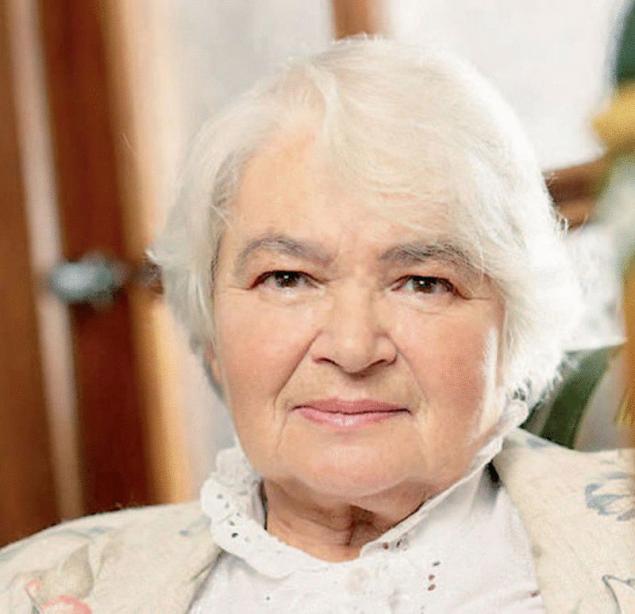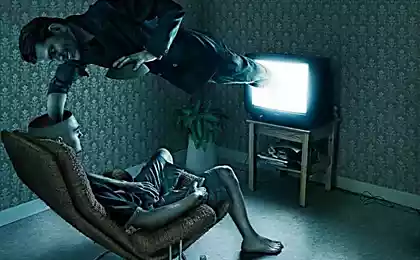681
Rada Granovskaya: People with klipovoy thinking elites become

To learn how to change the thinking in an era of high technology, said in an interview with the professor, the doctor of psychological sciences, senior researcher of the department of scientific research FGBU "All-Russian Center of Emergency and Radiation Medicine. AM Nikiforov EMERCOM of Russia "Rada Granovskaya.
- Today is often said that the current generation of children and young people is very different from previous ones. What, in your opinion, is this difference?
- It is connected with the fact that young people today perceive differently the new material: it is very fast and in different quantities. For example, teachers and parents moan and cry, that children and young people of today do not read books. This is true. Many of them do not see the need for books. They are forced to adapt to a new type of perception and pace of life. It is believed that during the last century the rate of change around the person increased by 50 times. It is natural that there are other ways of processing information. Especially because they are supported by a television, computer, Internet.
Children who have grown up in an era of high technology, a different look at the world. Their perception - is not consistent and not text. They see the whole picture information and interpret the principle of the clip. For today's youth tend klipovoy thinking. People of my generation who learned on the books, hardly imagine how such a thing is possible.
- Could you give some example of
? - For example, such an experiment was carried out. Child playing a computer game. Periodically, it is instructed to the next step, where a three-page text. Nearby sits an adult who, in principle, quick reads. But he can only read half a page, and the child is already processed all the information and make the next move.
- And what is the explanation
? - When children in the experiment were asked how they read so quickly, they answered that they did not read all of the material. They were looking for the key points, which gave them to know how to proceed. To understand how a such a principle, I can give you another example. Imagine that you have entrusted a large trunk in the attic to find old galoshes. You quickly throw out everything, you get to the galoshes and go down with them. And then some fool comes to you and asks to list all that you threw, so to say, the order in which it was lying there, but your task is not included.
There were even experiments. Children showed a picture for a certain number of milliseconds. They described it like this: someone picked up something on someone. The picture was a fox, who stood on his hind legs, and in front of net and held brandishing a butterfly. The question is whether to have children these details, or for a task, they decided it was enough that "someone picked up something for someone else." Now the rate of flow of information so that, for many items needed tasks. All you need is a common pattern.
On klipovoy thinking much work and school. Children are forced to read books. But in fact, the school is constructed so that the books are not books. Students read one piece, then a week later - another, but this time even a piece of the other ten books. Thus, declaring a linear reading, the school focuses on a completely different principle. No need to read the entire tutorial in a row. One lesson, then ten others, then again, this - and so on. As a result, there are contradictions between what the school needs and what it actually offers.
- And what kind of age limit in this case referred to
? - First of all, this type of thinking is typical of young people somewhere up to 20 years. Generation, whose members are now 20-35 years old, you might say, is at the crossroads.
- Are all the modern children and youth tend to klipovoy thinking
? - Most. But, of course, there remains a certain number of children with a consistent mindset that need monotonous and consistent amount of information to come to some conclusion.
- And what determines what the child will develop the mindset, serial or klipovoy
? - It depends largely on temperament. Phlegmatic, rather, we tend to perceive large amounts of information. It also depends on the environment, the tasks that it offers, on whether they come in any tempo. the old type of psychologists is no coincidence that people call the people of the book, and the new -. screen people
- And that is typical for them
? - Very high switching speed. They have the ability to simultaneously read, send sms, call someone - in general, to do many things simultaneously. And the world situation is that such people are increasingly required. Because today is a delayed reaction at any skill level is not a positive quality. Only some of the art and in exceptional situations is necessary to work with large amounts of information.
Another German industrialist Krupp wrote that if before it was tasked to destroy competition, he would have just given them the most highly qualified specialists. Because they did not start working until receive and process 100% of the information. And by the time they receive it, a decision that is required of them, it is no longer relevant.
Quick response, even if not precise enough, in most cases, is more important. All it accelerated. Changed the technical production system. Even 50-60 years ago, the car was, say, from 500 parts. And the need was very good, qualified, who would find a particular item, and quickly replaced. Now a technique preferably made from blocks. If there is a failure in any unit, it is entirely removed, and then insert the other quickly. This qualification, as before, no longer need to do so. And this idea of the speed of today penetrates everywhere. Who is the main indicator - speed
. - It turns out that today people learn to respond quickly to their tasks. And whether there is a downside?
- A reduction in training. People with klipovoy thinking can not carry out a deep analysis of the logic and can not solve enough challenges.
And here I would like to draw attention to the fact that now there is an interesting bundle. A very small percentage of wealthy and professionally advanced people teach their children mainly without a computer, require that they were engaged in classical music and appropriate sports. That is, in fact, give them education according to the old principle, which promotes the formation of a consistent, not klipovoy thinking. A striking example - Apple founder Steve Jobs has always limited the number of modern devices that children use at home
. - But very much depends on the environment in which children are brought up. Can parents to influence the fact that in spite of the current involvement in the world of modern devices, the child develops not only klipovoy thinking, but also the traditional, sequential?
- Of course they can. It is necessary, first of all, to try to expand their social circle. This live chat gives something irreplaceable.
- At the beginning of the interview, you mentioned that the books they read less. In your opinion, does this mean that the age of the mass of the book comes to a close?
- Unfortunately, this is largely true. In one of the American articles I recently read advice for university professors "is not recommended to his audience of the book, and recommend a chapter from a book, but rather a paragraph." It is much less likely that the book will be taken in hand, if it is recommend to read the whole thing. Vendors in shops pay attention to what the book is thicker than three hundred pages, and rarely even consider buying. The question is not in the price. The fact is that the people inside redistributed time for different types of activities. They'd rather sit in social networks than will read the book. It is interesting to them. People go into other forms of entertainment.
- I understand that klipovoy thinking - this is the inevitable consequence of the development of modern society, and to reverse this process can not be
? - That's right, this is the direction of civilization. But, nevertheless, we need to understand what it is. Those who went on klipovoy line of thinking, the elite never will. There is a stratification of society, very deep. So those who allow their children to sit for hours at the computer, prepare not the best future for them.
Interviewed by Tatiana Khruleva























